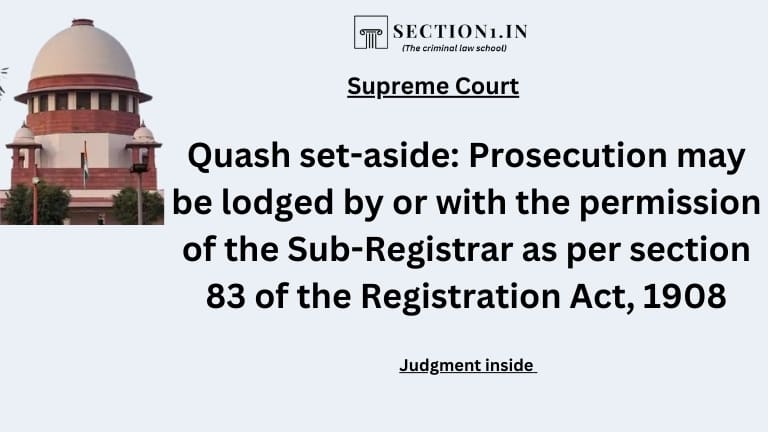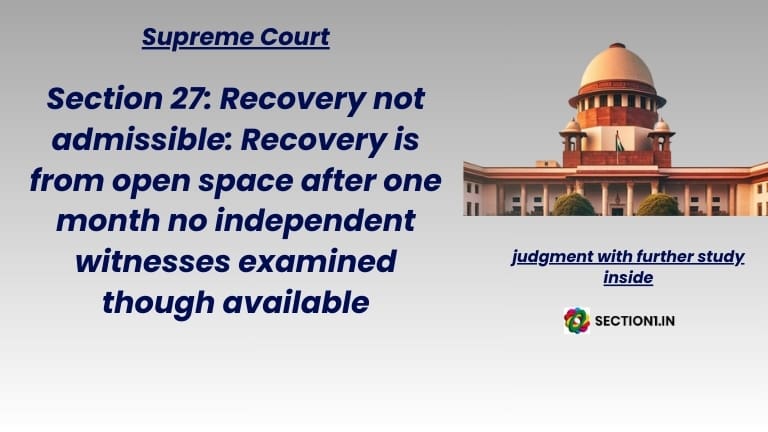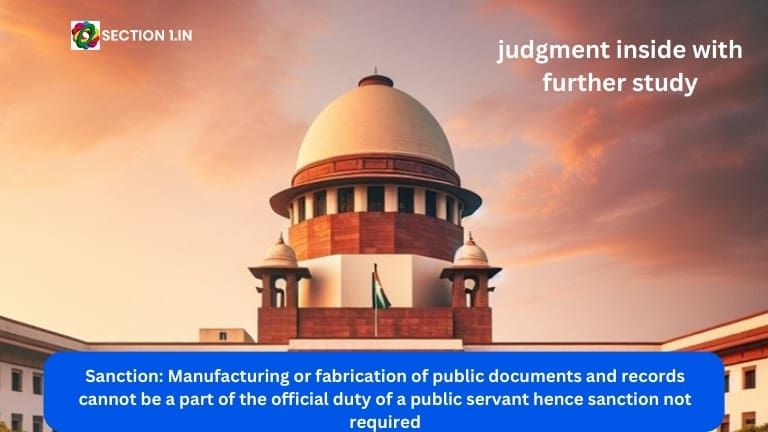Facts
On 3rd January, 2005, a charge-sheet was filed against all four accused persons. On the basis of the order dated 29th November, 2006 passed by the learned Chief Judicial Magistrate, the Crime Investigation Department (for short, “CID”) made reinvestigation and submitted a charge-sheet dated 31st March, 2009. In the final report submitted by the CID, it was recorded that no material was found against the appellants.
On 9th April, 2009, the learned Chief Judicial Magistrate took cognizance on the basis of the charge-sheet filed by the CID on 31st March, 2009 against accused-Gupteshwar Singh for the offences punishable under Section 302 read with Section 34 of the IPC and Section 27 of the Arms Act.
The second respondent’s father purported to file a protest petition by making an allegation that the CID acted in collusion with the present appellants. The protest petition was for raising an objection to the order dated 3rd November, 2009, taking cognizance only against one accused–Gupteshwar Singh. Thereafter, a further order was passed by the learned Chief Judicial Magistrate on 3rd November, 2009 taking cognizance against the present appellants. This is the order which was subjected to a challenge before the High Court.
The High Court relied upon a decision of this Court in the case of Nupur Talwar vs. CBI and Anr.1 and rejected the petition for quashing filed by the appellant.
We have also heard the learned counsel appearing for the State.
We have perused the order dated 9th April, 2009. The order was passed on the charge-sheet dated 31st March, 2009 filed by the CID. The order takes cognizance only as against Gupteshwar Singh. Surprisingly, a protest petition against the said order was entertained by the learned Chief Judicial Magistrate and he proceeded to pass the impugned order on 3rd November, 2009 taking cognizance against the present appellants. Such a course was not permissible as it was not open for the learned Chief Judicial Magistrate to entertain a protest petition against his earlier order of taking cognizance. The order dated 3rd November, 2009, amounts to modification of the earlier order dated 9th April, 2009, which was not permissible as there is no power conferred on the learned Judicial Magistrate to modify earlier order of taking cognizance.
These legal aspects have been clearly overlooked by the High Court. By referring to the decision of this Court in the case of Nupur Talwar (supra), the High Court observed that it is well settled that once protest petition is filed, depending upon the facts of the case, the Court can proceed on the basis of that protest petition and follow the procedure prescribed under Sections 200 and 202 of the CrPC. In this case, the Court was dealing with a completely different case where protest petition was filed against an order taking cognizance.
Therefore, the Appeal succeeds. The impugned order dated 20th March, 2023 of the High Court is set aside and the impugned order dated 3rd November, 2009 passed by the learned Chief Judicial Magistrate is hereby quashed and set aside.
We clarify that the order dated 9th April, 2009 of the learned Chief Judicial Magistrate taking cognizance against Gupteshwar Singh is maintained. We also make it clear that we have made no adjudication on the question of involvement of the present appellants in the crime in question. This judgment will not prevent the Court from proceeding in accordance with law at a later stage.
PARTY: RAMAKANT SINGH & ORS vs. THE STATE OF JHARKHAND & ANR – CRIMINAL APPEAL NO(S). 3484 OF 2023 – 2023 INSC 1002 – November 07, 2023.
https://main.sci.gov.in/supremecourt/2023/27198/27198_2023_9_27_48155_Judgement_07-Nov-2023.pdf
see also: weekly digest
Author’s note
First of all, the cognizance can be taken only against on offence and not on offender [Sunil Bharti Mittal vs. CBI – CRIMINAL APPEAL NO. 34 OF 2015 – (SC-3 Judge Bench)]. This is the basic. The only exception if Negotiable Instruments Act, 1881 inasmuch as it is special law. Here, the order of taking cognizance against offender is not at all legal; equally the protest petition filed against the order taking cognizance is also not sanctioned under the law. But the act of filing the protest petition could be treated as the objection u/s 465(2) Cr.P.C. Further there is no second cognizance authorised under the law, in other words. In other words the cognizance can be taken only once [Dharam Pal & Others vs. State of Haryana – CRIMINAL APPEAL NO. 148 of 2003 (para. 27 – 5 judge constitution bench)]. But Hon’ble Supreme Court did not get involve in those propositions at all and held that the order taking cognizance second time is an error and quashed.
Further study on protest petition:
WHETHER PROTEST PETITION IS “COMPLAINT”? – Section1
PROTEST PETITION MUST CONTAIN ALLEGATIONS. – Section1






